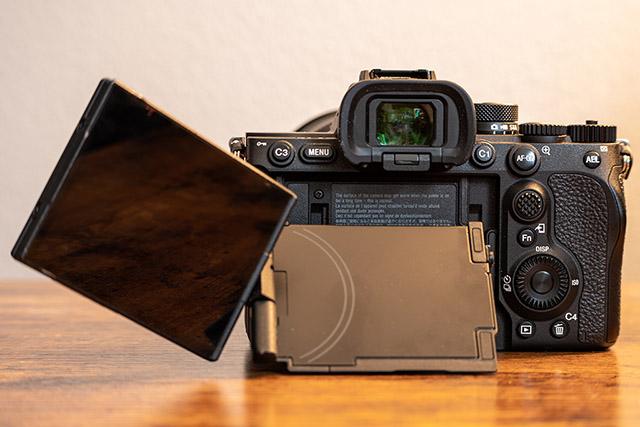Sony A7R V Hands-on Review: 61MP camera offers impressive improvements thanks to AI
posted Wednesday, December 21, 2022 at 2:30 PM EDT
Click here to read our Sony A7R V Hands-on Review

The Sony A7R V is more evolution than revolution for the high-res Alpha "R" series, but that doesn't mean there's not a lot to like. While the 61-megapixel sensor remains unchanged, Sony has made many other changes to the A7R V, ranging from minor to significant. Among key new features is a new autofocus system with AI-powered subject recognition technology, a dedicated AI processing unit, a new rear display, improved EVF, improved in-body image stabilization, dual CFexpress Type A slots (alongside UHS-II SD card slots), and 8K/24p video recording. Of course, there are other new features, but these have the greatest impact on the overall user experience and help cement the A7R V as one of the best high-resolution full-frame cameras available.

While not new, the 61MP image sensor at the heart of the A7R V continues as one of the camera's greatest strengths. It remains the highest-res full-frame camera on the market, eclipsing the Canon EOS R5 and Nikon Z7 II at roughly 45MP each. The A7R V delivers the same great detail, dynamic range and color rendering we expect. With improved processing power and the new dedicated AI Processing Unit, there are some improvements to image quality, especially in certain situations. Automatic exposure (AE) and automatic white balance (AWB) are better, which help for raw and especially JPEG shooting. For raw only, improved processing power and a better IBIS system result in improved Pixel-Shift Multi-Shot photography. In this mode, the camera shoots 16 consecutive raw images to produce a 241MP final image when composited on your computer. The AI helps reduce motion in between frames.

With all the A7R V's impressive resolving power, you need a good autofocus system to match. The camera includes a new 693-point hybrid autofocus system with improved area coverage, better low-light AF sensitivity, and new AI-powered subject recognition technology with real-time tracking. The autofocus system proved reliable in use across a wide range of situations. When testing the subject recognition specifically, especially on fast-moving birds, the A7R V did an outstanding job. While there were occasional instances of the camera failing to recognize a bird in the frame, especially in low light or when the bird blended in a bit with the background, the system was reliable overall.

Unfortunately, while image quality remains excellent with the back-illuminated 61MP image sensor, the lack of fast readout limits the A7R V regarding continuous shooting performance. The camera tops out at 10 frames per second with its mechanical shutter (7 fps with the electronic shutter) and its buffer depths aren't very good, at least with UHS-II SD cards. You can use CFexpress Type A cards with the A7R V to greatly improve buffer depth and clearing speeds, but CFexpress Type A cards are costly. Even so, the A7R V isn't an action camera, even if the autofocus system seems primed for high-speed photography. I think the new AI AF system will stretch its wings whenever Sony releases its next camera with a stacked image sensor.

The experience of using the A7R V is considerably better than that of the A7R IV, thanks largely to new displays. The rear display is now larger (3.2 inches versus 3.0 inches) and offers four-axis tilt. You can pull the screen straight from the camera, tilt it up and down, and flip it out for even greater rotation. It's handy. The EVF is also better, with the same 9.44M dot panel and 0.9x magnification of the Sony A1, although without the 240fps refresh rate of Sony's flagship A1. The EVF is very sharp, bright and large, and a sizable improvement over the one featured in the A7R IV. The A7R V also gets a redesigned menu system, which is a nice improvement – although still imperfect.

A future Hands-on Review will delve deep into the A7R V's new video features, including 8K/24p video, 4K/60p, and more. However, as a stills camera, the A7R V is excellent. It's not perfect – no camera is – and it may not be as big of an upgrade over the A7R IV that some users hoped for. Nonetheless, the Sony A7R V is a fantastic camera that delivers superb image quality and includes numerous improvements and features that help make it a more versatile and useful camera for a wider range of applications.